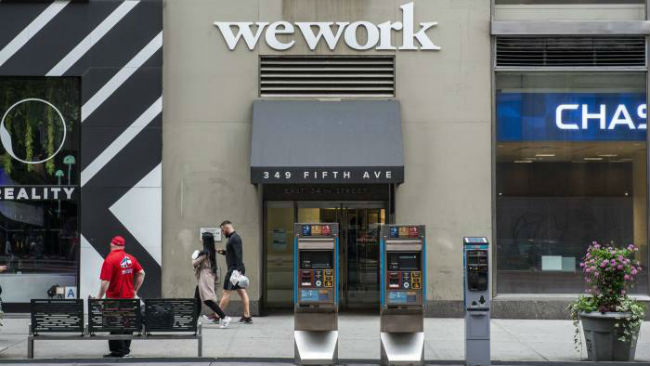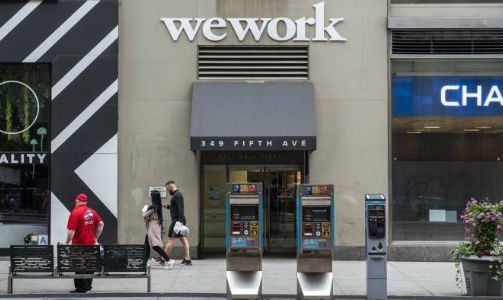WeWork's magical thinking disguises a flawed model

FT, August 22, 2019
by Elaine Moore
WeWork has the perfect blend of aggressive ambition and squidgy sincerity needed to take the crown in this year’s surge of technology start-ups going public.
Like Uber and Lyft before it, the office rental company has become a global brand in less than a decade, spinning a single rented floor in New York into a $47bn global company synonymous with bright, beautiful spaces. Like Uber and Lyft, no one can say for sure whether its business actually works.
In reality, WeWork is a conventional real estate company dressed up in tech bravado. For proof see the listing document, which is about twice as long as it needs to be, padded with photos of people looking cheery while WeWork tries to “elevate the world’s consciousness”. Or the company’s claim that it has a market opportunity of $3tn.
This is precisely the sort of overconfidence that led Lyft to claim it was part of one of the biggest societal shifts since the invention of the car, and Uber to say flying taxis will soon be in the air, while suggesting it was targeting a $12tn market, including the money consumers spend in restaurants.
Hype is one of the tech sector’s most magical qualities. Why under-promise when the financial success of the best bets has been so extraordinary?
Tesla’s prediction of robo-taxis has the added bonus of making its forecast for driverless cars seem achievable. Uber’s gargantuan addressable market makes its own valuation look more sane. Much is made of the fact that Lyft and Uber shares trade below the price at which they listed. Less about the fact that two lossmaking companies with no clear path to breaking even are still valued at $16bn and $59bn, respectively.
True believers are not limited to start-ups. At an Amazon conference earlier this year, I sat beside a man whose business card told me that he was chief evangelist of Amazon Web Services. Grandiosity makes sense in an industry that often has to generate excitement and funding before products even exist.
The trouble with WeWork is that the flashier parts of the company’s story are a poor distraction from the more alarming aspects of the business, including a near $2bn net loss last year and falling revenue per membership.
Founder Adam Neumann and his wife Rebekah have declared they will give away $1bn in 10 years or risk swapping Mr Neumann’s supervoting shares for slightly less supervoting ones. The pledge has been written into the company’s prospectus as if it will affect the running of the company. But it has nothing to do with the way WeWork — or parent The We Company — will operate. In fact, open-handed generosity is at odds with the tight grip the founder plans to keep on voting rights in the business.
Corporate promises to do good have a tendency to lead to bitter disappointment. The violence of the recent backlash against US tech platforms partly reflects resentment at the emptiness of their pledges to make the world a better place. Employees who believed in Google’s “Don’t be evil” philosophy now take part in walkouts. Facebook users feel betrayed by the company’s rapacious use of their data.
This incomprehension can be mutual. The first time I expressed scepticism about WeWork’s model in an article, a representative from the company called to tell me that I had hurt his feelings and clearly did not care enough about changing the world for the better.
It is true that WeWork has done office workers a service by reminding us that drab decor need not be the norm. I wouldn’t mind having mood lighting and neon wall art above my desk, telling me to hustle and do what I love.
I would be less happy with the fact that WeWork provides less than half the space per person of a standard US office. This sort of efficiency ought to translate into tremendous margins. Yet the more business WeWork does, the more money it loses. Filing documents show that in the first six months of the year revenues rose 101 per cent on the previous year. But over the same period, total expenses also rose 101 per cent.
Net losses are going to keep on growing. But more alarming is the fact that the company isn’t even peddling a new business model. WeWork agrees long office leases, gussies up the space and rents it out to modish start-ups. IWG, a landlord that has been renting flexible space to less groovy companies for decades, is on course to earn more revenue than WeWork this year and is profitable. Even so, it trades at about a tenth of WeWork’s private valuation.
Hype is necessary to promote new ideas. But stripped of tech glitter, WeWork’s business model is not only unprofitable but unoriginal.
Back
